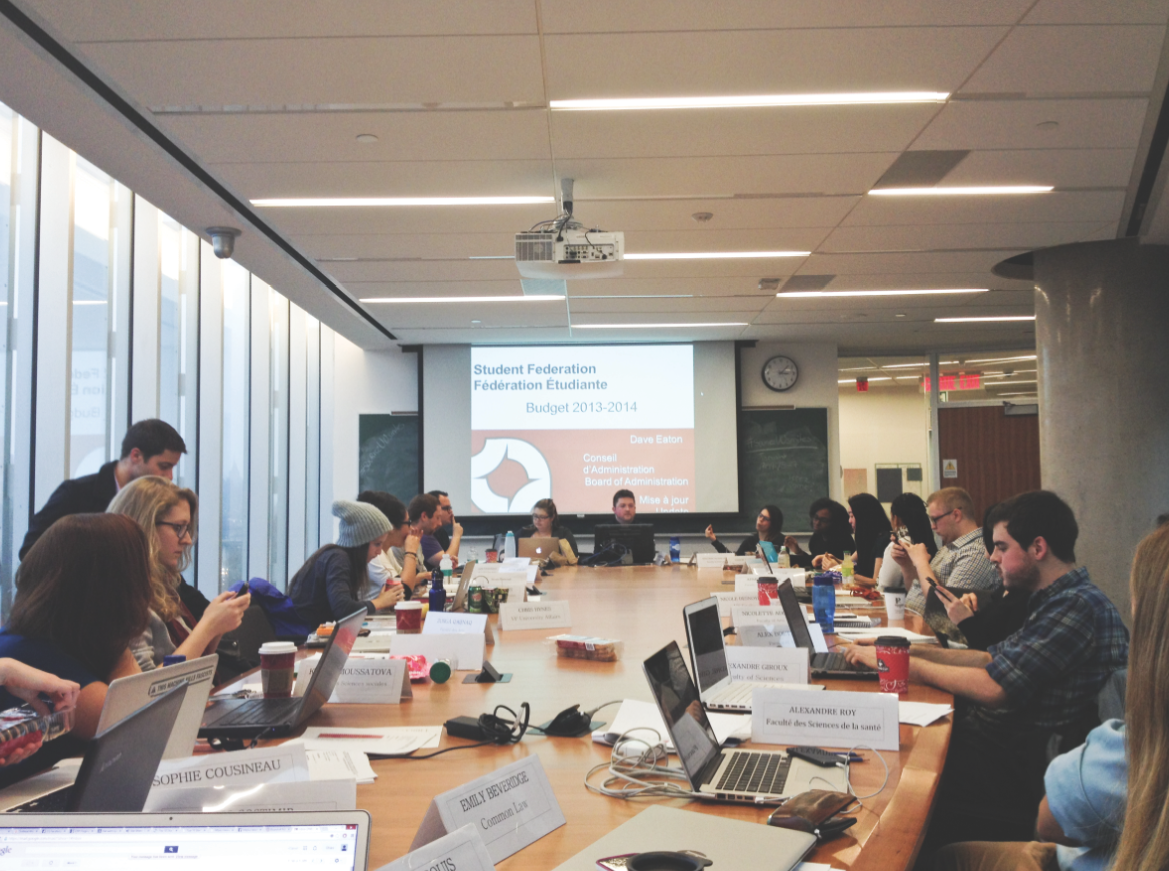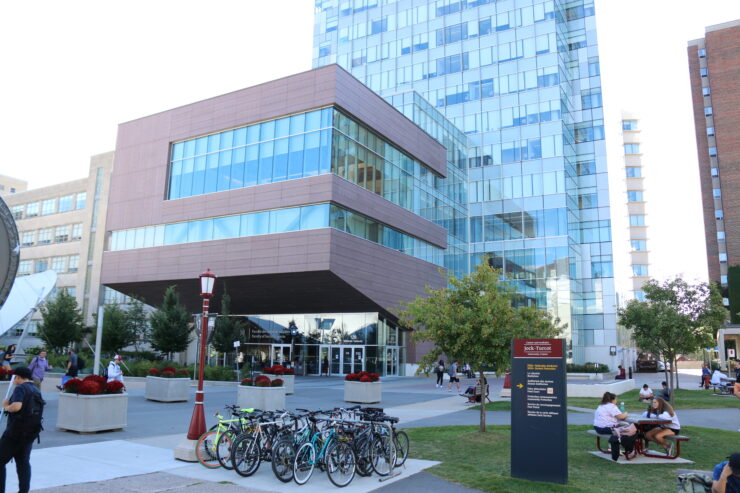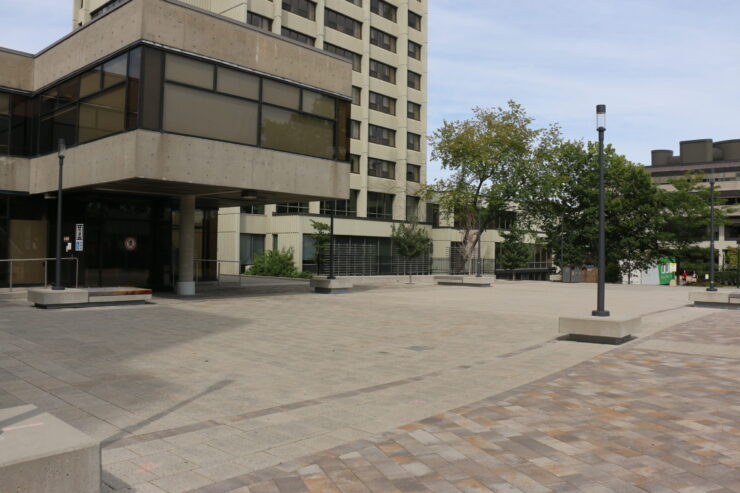Members of the Student Federation of the University of Ottawa (SFUO) Board of Administration (BOA) expressed frustration following a nearly seven-hour meeting Nov. 17 that included a budget review, four motions, and votes on the creation of two ad-hoc special committees.
Katya Moussatova, BOA member for the Faculty of Social Sciences, presented three motions to the board, including one to make candidate debates mandatory during election period, which passed. SFUO vp equity Nicole Desnoyers said debates during elections should be institutionalized in the constitution.
Moussatova said she was “OK” with the events of the meeting, but also “kind of frustrated” by it.
“I think we achieved a lot but also completely retracted a lot,” she said. “I feel like a lot of what was proposed was turned down just on the matter and there was no attempt to fix it, there was just an attempt to disregard and eliminate it.”
Moussatova presented two other motions which were denied. One stated the elections committee should not be comprised of more than two members from the same affiliation. The other required executives to not publicly support or campaign for candidates.
“I feel that executives have a little more leverage and influence on who they can get to vote,” Moussatova said.
Nasha Brownridge, whose candidacy was deemed unconstitutional during the October by-elections, making her unable to run for an executive position at the SFUO, said she was looking forward to hearing the BOA debate the motion put forth to prohibit executive endorsement.
“Simply put, I wanted to run for an executive position and despite not being able to, I found it extremely intimidating that members of the executive that I do know and that I saw elected were endorsing other candidates,” she said. “That both put me at a disadvantage, but also it doesn’t encourage people to run, and I believe one of the fundamental roles of the SFUO should be to encourage participation.”
Brownridge said she might consider running for a position in February, but that depends on her academic commitments.
Desnoyers voted against the motion, saying executives are voted into office in order to voice their opinions. She said the fact that executives are allowed to publicly support candidates encourages transparency and that she has faith in students to make informed decisions independent of executive influence.
“Executives aren’t elected to be neutral,” she said. “They’re elected because of the ideas and the platform points that they are presenting to students. Students are saying, ‘I am voting for you because I believe in what you want to do on campus’, not, ‘I am voting so that you can be silent during the major times on campus.’”
Daniel Stojanovic, BOA member for the faculty of health sciences, said he thinks there were other reasons for the failed motion.
“I thought they were derived from a place of emotion,” he said. “It is very hard to base a motion off of emotions like that, so from that point, its origin didn’t seem as strong as it could have been, so that is one reason they failed.
He also said that in a room where a vote is being taken on whether executives can support campaigns, but that the executives are entitled to a vote and the BOA cannot force them to abstain, it makes sense that the vote went the way it did.
Stojanovic presented motions for the creation of two ad-hoc special committees used for special purposes on a case-to-case basis. One was passed, which called for the creation of a publicity committee allowing BOA members to self-promote and explain the purpose of the board to students.
Stojanovic said he was surprised at the amount of backlash at the meeting. His other motion, calling for the creation of a committee to research the elections, was denied.
“One of my colleagues said, ‘If it ain’t broke, don’t fix it,’ and I just couldn’t stand it, because at every meeting, we bring up the fact that it’s broken,” he said.
Desnoyers said she feels members need to present more issue-based motions to the board and that students will become more engaged when they see the board creating positive change on campus.
“Students need to see how the SFUO and the BOA are relevant to their lives,” Desnoyers said. “We don’t become relevant bodies because we tell them that we changed by-law 8.3.5.2 or whatever, because students don’t know what that means. But if you tell them you created a committee to create access to good food on campus, students will say, ‘This is how this body is relevant to me.’”
The next BOA meeting is Dec. 1.





